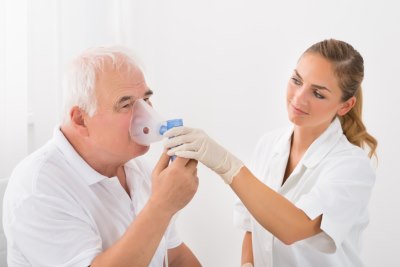Methacholine Challenge Test
 A methacholine challenge test is a type of bronchoprovocation test used to help diagnose asthma. Methacholine is an inhaled drug that causes mild narrowing of the airways in the lungs, like asthma.
A methacholine challenge test is a type of bronchoprovocation test used to help diagnose asthma. Methacholine is an inhaled drug that causes mild narrowing of the airways in the lungs, like asthma.
A methacholine challenge test can be done in your doctor’s office or in a pulmonary function lab. However, there are certain conditions in which the test should not be performed: pregnancy or nursing, aortic or brain aneurysm, uncontrolled blood pressure, heart attack or stroke in the last three months, or very low lung function on the baseline spirometry test.
Before the day of the test, your doctor will ask you to stop certain medications or inhalers to get an accurate result. On the day of the test, you should not eat or drink any caffeine containing products (coffee, tea, chocolate, soda). You should also ask your doctor about other factors that affect the test, including smoking, exercise, and upper respiratory infection.
The test starts with a baseline breathing test (spirometry) to check how well your lungs are working, including a Forced Expiratory Volume (FEV1). Progressively larger doses of inhaled methacholine are given by a nebulizer. Spirometry will be performed before and after every dose of inhaled methacholine to measure the amount of airway narrowing. Since you will be blowing hard and fast, you may develop dizziness, lightheadedness, cough, chest pain, wheezing, or shortness of breath. You should let the technician know if you notice any discomfort. The test stops once the lung function (FEV1) drops by 20% or more from baseline or the maximum dose of methacholine is reached. Once the test is complete or you develop discomfort, you will receive a medication to open your lungs (bronchodilator) and a repeat breathing test will be performed to make sure your lungs have returned to normal.
A methacholine challenge test is considered positive if methacholine causes the lung function (FEV1) to drop by 20% or more compared to your baseline. A negative methacholine challenge test nearly rules out a diagnosis of asthma.
Find out more about asthma.
The AAAAI's Find an Allergist / Immunologist service is a trusted resource to help you find a specialist close to home.
10/31/2023